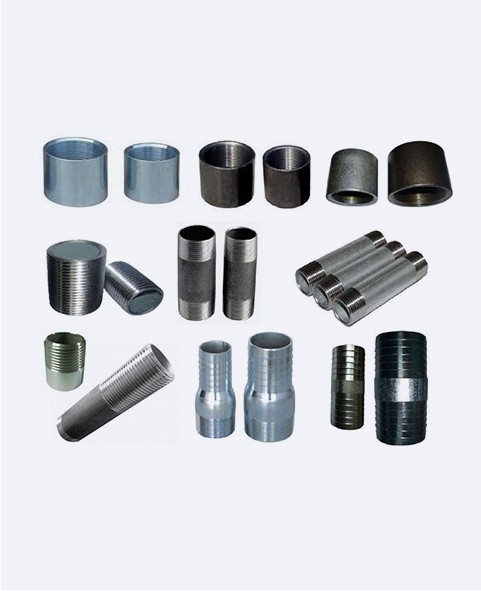-
Cangzhou Yulong Steel Co., Ltd.
-
Phone:
+86 13303177267 -
Email:
admin@ylsteelfittings.com
- English
- Arabic
- Italian
- Spanish
- Portuguese
- German
- kazakh
- Persian
- Greek
- French
- Russian
- Polish
- Thai
- Indonesian
- Vietnamese
- Zulu
- Korean
- Uzbek
- Hindi
- Serbian
- Malay
- Ukrainian
- Gujarati
- Haitian Creole
- hausa
- hawaiian
- Hebrew
- Miao
- Hungarian
- Icelandic
- igbo
- irish
- Japanese
- Javanese
- Kannada
- Khmer
- Rwandese
- Afrikaans
- Albanian
- Amharic
- Armenian
- Azerbaijani
- Basque
- Belarusian
- Bengali
- Bosnian
- Bulgarian
- Catalan
- Cebuano
- China
- China (Taiwan)
- Corsican
- Croatian
- Czech
- Danish
- Esperanto
- Estonian
- Finnish
- Frisian
- Galician
- Georgian
- Kurdish
- Kyrgyz
- Lao
- Latin
- Latvian
- Lithuanian
- Luxembourgish
- Macedonian
- Malgashi
- Malayalam
- Maltese
- Maori
- Marathi
- Mongolian
- Myanmar
- Nepali
- Norwegian
- Norwegian
- Occitan
- Pashto
- Dutch
- Punjabi
- Romanian
- Samoan
- Scottish Gaelic
- Sesotho
- Shona
- Sindhi
- Sinhala
- Slovak
- Slovenian
- Somali
- Sundanese
- Swahili
- Swedish
- Tagalog
- Tajik
- Tamil
- Tatar
- Telugu
- Turkish
- Turkmen
- Urdu
- Uighur
- Welsh
- Bantu
- Yiddish
- Yoruba

Dec . 25, 2024 22:44 Back to list
bending stainless steel tubing by hand
Bending Stainless Steel Tubing by Hand A Comprehensive Guide
Bending stainless steel tubing by hand is an essential skill frequently required in various fields, such as automotive, marine, and structural applications. Whether you are a hobbyist or a professional craftsman, mastering the art of bending stainless steel tubing can save you time and money while allowing you to create custom components that meet your specific needs. In this article, we will explore the tools and techniques involved in this process, along with valuable tips to achieve precise and clean bends.
Understanding Stainless Steel Tubing
Stainless steel is a popular material choice for tubing due to its high corrosion resistance, durability, and aesthetic appeal. Common grades used for tubing include 304 and 316, with 304 being more widely used for its good formability, while 316 offers better corrosion resistance, particularly in marine environments. Before embarking on a bending project, it’s essential to choose the right grade and wall thickness for your application.
Tools and Equipment Needed
To successfully bend stainless steel tubing by hand, you will need some basic tools and equipment. Here are the essentials
1. Tubing Bender A manual tubing bender is a crucial tool that allows you to bend tubing accurately. Various models are available; some have adjustable mandrels, while others come with pre-set angles. 2. Protective Gear Safety glasses and gloves are must-haves when handling stainless steel, as sharp edges and flying debris can pose risks.
3. Measuring Tools A tape measure and a protractor will help you mark and measure dimensions accurately before bending.
4. Marker or Scribe A permanent marker or scribe will allow you to make precise markings on the tubing for guide reference during the bending process.
5. Clamping Surface A secure, flat workbench or a pair of clamps will stabilize the tubing while you work.
Step-by-Step Bending Process
bending stainless steel tubing by hand

1. Measuring and Marking Start by measuring the length of tubing you need. Mark the location where the bend will occur using your marker. It’s crucial to be precise at this stage, as any miscalculations can lead to inaccurate bends.
2. Setting Up the Tubing Bender Place the tubing in the tubing bender, aligning it with the marked line to ensure the bend occurs at the right spot. Depending on your bender’s design, you may need to position it differently to achieve your desired angle.
3. Bending the Tubing Gradually pull the handle of the tubing bender to apply pressure on the tubing. It’s important to bend slowly and steadily to avoid kinking the tube. Depending on the bender type, you might need to adjust the tubing’s position slightly as you bend to maintain an even curve.
4. Checking the Angle After completing the bend, use the protractor to verify that you have achieved the desired angle. If adjustments are necessary, gently tweak the bend by hand as needed.
5. Finishing Touches Once you have the correct bend, check the overall length and make any additional cuts or adjustments to ensure it fits perfectly in your application.
Tips for Successful Bending
- Heat Treatment For larger diameter tubes or thicker materials, consider using a heat source, such as a propane torch, to make bending easier. Heating the tube reduces the risk of kinking and makes it more malleable.
- Practice If you are new to bending, practice on scrap pieces of tubing before attempting your final project. This will help you develop a feel for the material and the bending process.
- Use of Lubricants Applying a lubricant to the tubing can help reduce friction during bending, promoting a smoother operation and minimizing the chance of damaging the material.
Conclusion
Bending stainless steel tubing by hand is a valuable technique that can lead to the creation of custom parts suited for a variety of applications. By using the right tools and techniques, you can achieve precise bends that enhance your projects' quality and functionality. With practice and patience, anyone can learn to bend stainless steel tubing effectively, leading to endless possibilities in design and craftsmanship.
Latest news
-
ANSI 150P SS304 SO FLANGE
NewsFeb.14,2025
-
ASTM A333GR6 STEEL PIPE
NewsJan.20,2025
-
ANSI B16.5 WELDING NECK FLANGE
NewsJan.15,2026
-
ANSI B16.5 SLIP-ON FLANGE
NewsApr.19,2024
-
SABS 1123 FLANGE
NewsJan.15,2025
-
DIN86044 PLATE FLANGE
NewsApr.19,2024
-
DIN2527 BLIND FLANGE
NewsApr.12,2024
-
JIS B2311 Butt-Welding Fittings LR/SR 45°/90° /180°Seamless/Weld
NewsApr.23,2024











